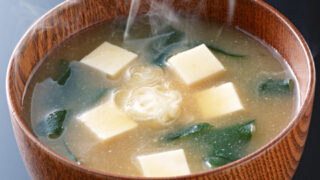[ad_1]
Soy sauce is a popular condiment that has been used in Asian cuisine for centuries. It is made from fermented soybeans, wheat, and salt, and is known for its savory, umami flavor. While it is commonly used to enhance the flavor of dishes, soy sauce also offers several health benefits that make it a valuable addition to your cooking.
Rich in Essential Nutrients
Soy sauce is a good source of essential nutrients such as protein, iron, and manganese. It also contains small amounts of potassium and magnesium. These nutrients are important for maintaining overall health and well-being. Incorporating soy sauce into your cooking can help increase your intake of these essential nutrients.
Contains Beneficial Antioxidants
One of the key health benefits of soy sauce is its high antioxidant content. Antioxidants help protect the body from oxidative stress and may reduce the risk of chronic diseases such as heart disease, cancer, and diabetes. The antioxidants found in soy sauce, such as flavonoids and phenolic compounds, can help support overall health and reduce inflammation in the body.
May Aid in Digestion
Soy sauce contains beneficial enzymes and probiotics that can aid in digestion. These natural compounds can help promote the growth of healthy gut bacteria and improve overall digestive health. Using soy sauce in your cooking can help support a healthy digestive system and improve nutrient absorption.
Offers a Low-Calorie Flavor Boost
When used in moderation, soy sauce can add a rich, savory flavor to dishes without adding extra calories. This makes it a great option for those looking to add flavor to their meals without increasing their calorie intake. By using soy sauce in your cooking, you can enhance the taste of your dishes without compromising on health or nutrition.
May Help Lower the Risk of Chronic Diseases
Studies have suggested that the consumption of soy sauce may be associated with a reduced risk of chronic diseases such as heart disease and certain types of cancer. The antioxidants and beneficial compounds found in soy sauce may help protect the body from oxidative damage and inflammation, which are underlying factors in the development of many chronic diseases.
Conclusion
Overall, soy sauce offers several health benefits that make it a valuable addition to your cooking. From its rich nutrient content to its potential to aid in digestion and reduce the risk of chronic diseases, soy sauce can be a beneficial and flavorful ingredient to include in your meals. However, it is important to use soy sauce in moderation, as it can be high in sodium. Choosing low-sodium or reduced-sodium options can help minimize the potential drawbacks of soy sauce while still reaping its health benefits.
FAQs
Is soy sauce high in sodium?
Yes, traditional soy sauce is high in sodium. However, there are low-sodium and reduced-sodium options available that can help minimize the sodium content while still providing the flavor and health benefits of soy sauce.
Is soy sauce suitable for those with gluten sensitivity?
Traditional soy sauce contains wheat, so it is not suitable for those with gluten sensitivity or celiac disease. However, there are gluten-free soy sauce alternatives made with ingredients such as tamari that are safe for individuals with gluten intolerance.
Can soy sauce be used in a variety of cuisines?
While soy sauce is a staple in Asian cuisine, it can be used to add depth of flavor to a wide range of dishes from different cuisines. Its rich, savory taste can enhance the flavor of stir-fries, marinades, salad dressings, and more.
What is the difference between light and dark soy sauce?
Light soy sauce is thinner and saltier, while dark soy sauce is thicker and sweeter. Dark soy sauce is often used for braising and glazing, while light soy sauce is more commonly used for seasoning and dipping.
[ad_2]











Comments